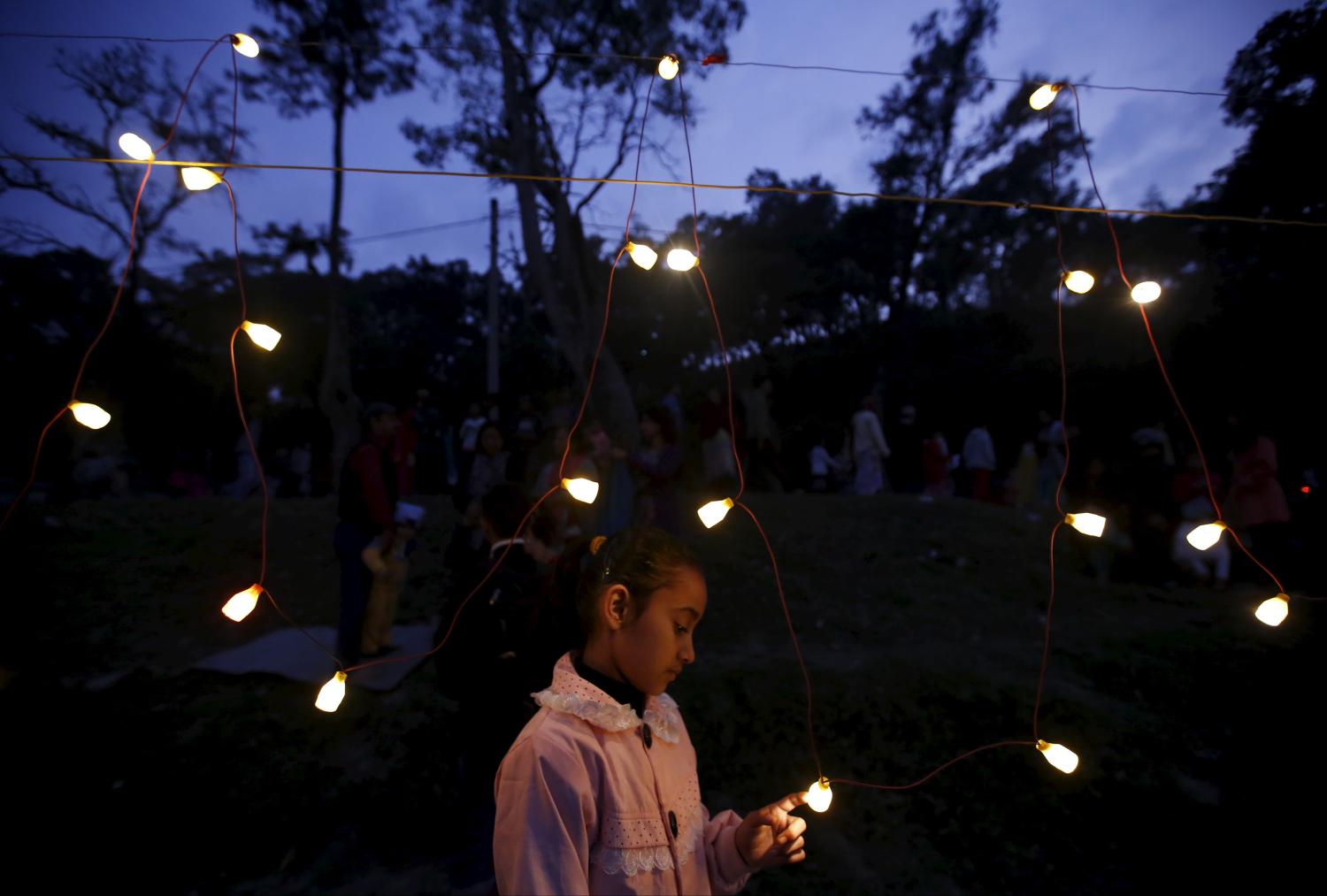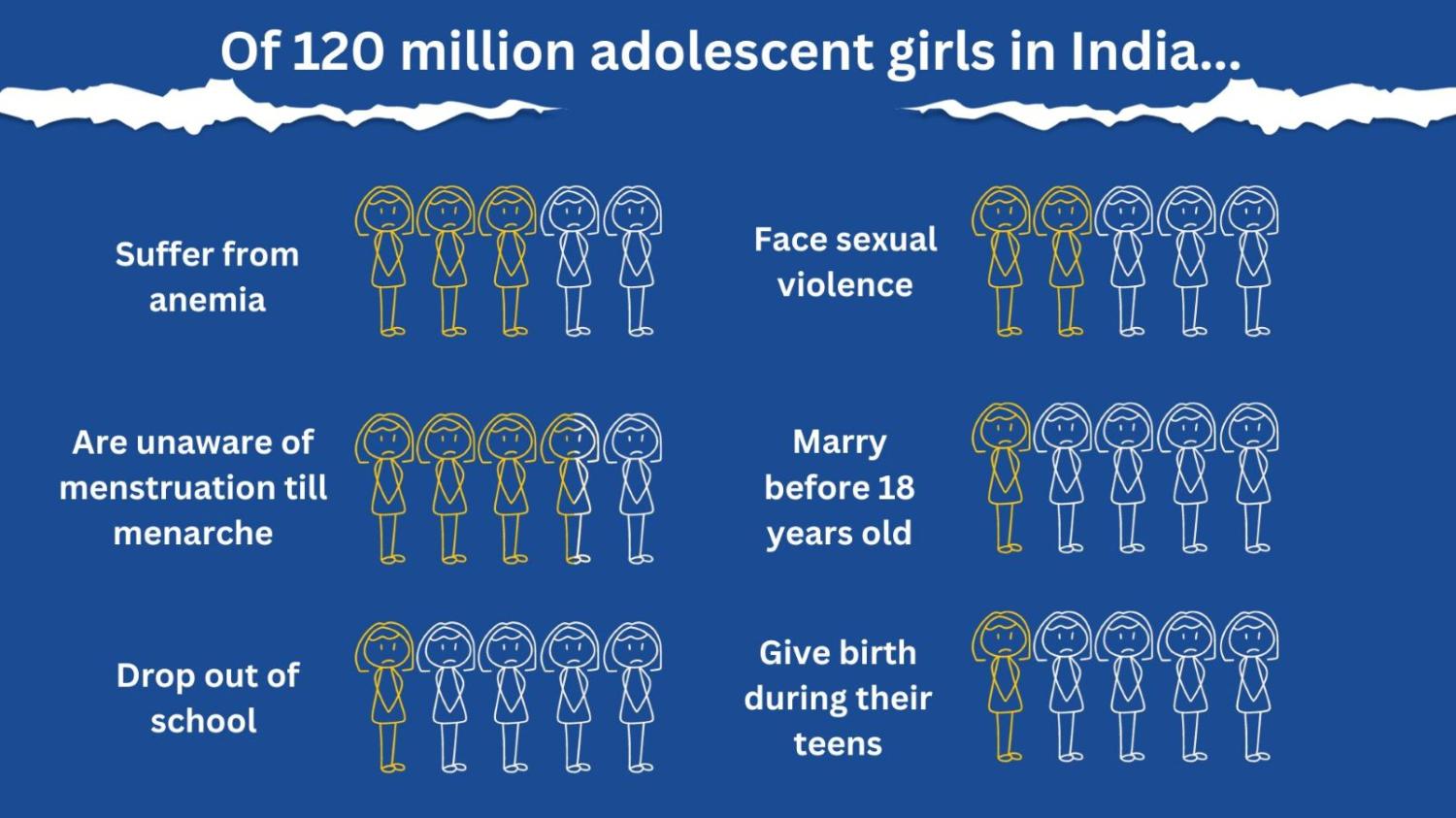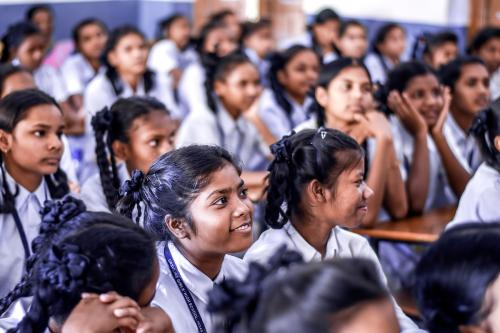“I am proud of the woman I have become. Are you proud to be a girl?”
A confident young Vignatha, a VOICE camp counselor, addresses a group of 25 adolescent girls in her class. She’s poised; few would suspect the adversity she recently faced. Her family’s economic crisis, intensified by the COVID-19 pandemic, forced her to discontinue her studies. She also faced pressure to marry her brother-in-law. Her parents could not find means to support the family so Vignatha was sent away to her aunt’s house, where she endured verbal abuse and was burdened with household chores. She was trapped in the socio-cultural and economically vulnerable situation that is so common in traditional patriarchal communities.
In India, many girls face similar situations, as seen in the figure here. Adolescent girls from socioeconomically marginalized communities in India face multi-space exclusion that leaves them with reduced agency. This will most likely lead to an inter-generational transfer of oppression as a traditional patriarchal system will suppress their voices and deny them their rights. I refer to this as the “cycle of denial.”
However, what levers can be maneuvered by a girl like Vignatha to find their voices and agency? How can programs and policies help break the cycle of denial and end intergenerational oppression for girls and women in India?
In my ongoing research, I used a case-study method to analyze VOICE 4 Girls, a nongovernmental organization in India. The research delved deeper into the systemic conditions that trap adolescent girls in a cycle of denial and recommends evidence-based policy solutions for stakeholders to create enabling conditions for strengthening girls’ agency.
The importance of gender-transformative safe spaces
The research sheds light on the importance of gender-transformative safe-spaces for girls. VOICE 4 Girls works with multiple stakeholders like the Departments of Social Welfare and Education to create gender-transformative safe spaces in publicly funded government schools and communities. VOICE programs are led by young college students who, as camp counselors, impart a unique curriculum that enables girls to strengthen their agency and find their voices. Vignatha shares that it was the VOICE camps where she first learned about adolescence, gender dynamics and her rights, gender-based violence, and future-planning. She also acquired life skills such as negotiation and critical thinking. Vignatha and many others I surveyed for the research revealed how the knowledge and skills they gained in VOICE programs helped them navigate the patriarchal norms and pressures from family. The program has helped them unpack the complexity of adolescence, strengthen their agency, and widen their support networks.
Vignatha reflects that, for a few weeks after the pandemic, the problems she faced seemed insurmountable. However, after the initial shock, she says the things she learned from VOICE’s safe space came back to her. She mentions that she used the problem-solving and decisionmaking framework she learned in the VOICE classroom to come up with solutions. She courageously exposed her aunt’s mistreatment and refused the marriage proposal. Subsequently, she took a part-time job at a store and completed her undergraduate degree. She also motivated her siblings to continue their education. Vignatha now engages with VOICE 4 Girls to guide young girls like her.
Vignatha’s story proves that powerful transformation is possible. India will hugely benefit from unlocking the potential of girls by helping them navigate social institutions, norms, and practices that promote gender discrimination. In order to facilitate these changes, I offer the following recommendations:
1. Create gender-transformative safe spaces for adolescent girls in schools and communities. Physical spaces must be created in schools and community centers to conduct adolescent-friendly programming. The programming should incorporate:
- A leadership program centered around life skills and critical topics around sexual and reproductive health and rights (SRHR), gender-based violence (GBV), careers and futures, and rights and self-awareness.
- A young mentor-led approach that will allow girls to open up, receive, and respond to information in a safe space while also creating a model of peer-to-peer social networks.
- The creation of a place where adolescent girls are encouraged to use their voice to negotiate for their future as well as for other girls and women in their communities.
2. Engage parents and other community members. Parents can become strong advocates and champions of girls. Mobilizing them about gender equality, opportunities for girls and the support required for them can create enabling conditions for girls. During the research, many girls mentioned that their parents will support them but do not know the opportunities available for girls as well as parents who shared they want the best for their girls. The best example of parent-engagement is through adolescent peer leaders who can be trained and equipped to spread awareness about menstrual health and hygiene, gender-based violence, and rights of girls and women. This I suggest as girls are embedded in the community and will know best the language and the arguments that can be used to transform communities. They will also serve as role models and leaders for other girls in the community.
3. Develop career support programs. Give girls and young women access to career counseling, technical skills training, and soft-skills training that provides knowledge about higher education and employment opportunities. Physical or virtual hubs can be created in schools and communities to provide these services.
4. Create safe and violence-free communities. Awareness programs on laws related to safety and security of girls and women like the Protection of Children from Sexual Offenses Act (POSCO Act), Protection of Women from Domestic Violence Act (PWDVA), Right to Education Act 2009 (RTE), and the Prohibition of Child Marriage Act, 2006 must be delivered to girls directly as well as through campaigns into the community. At the same time, efforts must be made to strengthen the implementation of these laws.
In conclusion, as is the mantra of VOICE 4 Girls, “when a girl finds her voice, the world around her begins to change.” An adolescent girl has the incredible power to not just exercise her agency for herself and her rights but also that of other girls in her community. Supporting girls to have safe spaces, creating programs centering their needs and aspirations, and galvanizing the momentum gained by creating channels for these girl leaders is the need of the hour.
For more insight into the research and recommendations, please attend the symposium workshop on December 6, 2023.
The Brookings Institution is committed to quality, independence, and impact.
We are supported by a diverse array of funders. In line with our values and policies, each Brookings publication represents the sole views of its author(s).








Commentary
Strengthening girls’ agency: A story of hope and transformation in India
December 5, 2023